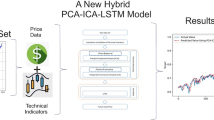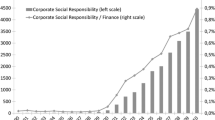Abstract
In this paper, we examine two different investing attitudes, being conservative sentiment which mitigates the momentum effect and, alternatively, the optimistic sentiment which strengthens such an effect. Where the stock market index levels close near a previous peak level, the impact of the index on momentum profits can assist in identifying such sentiments. In this study, we investigate the price and price-size momentum strategies in Taiwan of short formation periods of less than a month. The results indicate that investors adopt optimistic attitudes towards the 5-day and 20-day highs in the market index, whereas a conservative attitude is adopted at the 52-week high. Using the quantile regression model, the results indicate that the momentum effect is mitigated when the stock index price is relatively high for higher momentum profits. On the other hand, the momentum effect is strengthened when the stock index price is relatively high for lower momentum profits. However, the high point of the stock index is not found to have any impact on the price-B/M momentum effect.


Similar content being viewed by others
References
Barberis N, Shleifer A (2003) Style investing. J Financ Econ 68:161–199
Barberis N, Shleifer A, Vishny R (1998) A model of investor sentiment. J Financ Econ 107:797–817
Bhojraj S, Swaminathan B (2006) Macromomentum: returns predictability in international equity indices. J Bus 79:429–451
Brown GW, Cliff MT (2004) Investor sentiment and the near-term stock market. J Empir Finance 11:1–27
Brown S, Du DY, Rhee SG, Zhang L (2008) The returns to value and momentum in Asian markets. Emerg Mark Rev 9:79–88
Bulkley G, Nawosah V (2009) Can the cross-sectional variation in expected stock returns explain momentum? J Financ Quant Anal 44:777–794
Chen A (2000) Momentum does not matter consistently: the evidence from Taiwan stock returns. Working paper, SSRN
Chen YW, Rahman H (2008) Trading strategies and volume in Taiwan stock market. Bus Rev 11:76–83
Chen YW, Wu H (2007) Investigation of the returns of contrarian and momentum strategies in the Taiwanese equity market. J Am Acad Bus 11:143–150
Chen Y, Wang C, Lin F (2008) Do qualified foreign institutional investors herd in Taiwan’s securities market. Emerg Mkt Fin Trade 44:62–74
Daniel K, Titman S (1999) Market efficiency in an irrational world. Financ Anal J 55:28–40
Daniel K, Hirshleifer D, Subrahmanyam A (1998) Investor psychology and security market under-and overreactions. J Finance 53:1839–1885
Daniel K, Hirshleifer D, Subrahmanyam A (2001a) Overconfidence, arbitrage, and equilibrium asset pricing. J Finance 56:921–965
Daniel K, Titman S, Wei KC (2001b) Explaining the cross-section of stock returns in Japan: factors or characteristics? J Finance 56:743–766
DeBondt WFM (1993) Betting on trends: intuitive forecasts of financial risk and return. Int J Forecast 9:355–371
Demir I, Muthuswamy J, Walter T (2004) Momentum returns in Australian equities: the influences of size, risk, liquidity and return computation. Pac Basin Finan J 12:143–158
Du D (2008) The 52-week high and momentum investing in international stock indexes. Quart Rev Econ Finan 48:61–77
Fang H, Wong JY, Wang YC, Lu YC (2009) Information contents of QFIIs’ cascades in the Taiwan stock market. Working paper, SSRN
Figelman I (2007) Stock return momentum and reversal. J Portf Manage 34:51–70
Foerster S, Prihar A, Schmitz J (1995) Back to the future. Can Invest Rev 7:9–13
George T, Hwang CY (2004) The 52-week high and momentum investing. J Finance 59:2145–2176
Haugen R, Baker N (1996) Commonality in the determinants of expected stock returns. J Financ Econ 41:401–439
Hong H, Stein JC (1999) A unified theory of under reaction, momentum trading, and overreaction in asset markets. J Finance 54:2143–2184
Hong H, Lim T, Stein JC (2000) Bad news travels slowly: size, analyst coverage, and the profitability of momentum strategies. J Finance 55:265–295
Huddart S, Langk M, Yetman MH (2009) Volume and price patterns around a stock’s 52-week highs and lows: theory and evidence. Manage Sci 55:16–31
Jegadeesh N (1990) Evidence of predictable behavior of security returns. J Finance 45:881–898
Jegadeesh N, Titman S (1993) Returns to buying winners and selling losers: implications for stock market efficiency. J Finance 48:65–91
Jegadeesh N, Titman S (2001) Profitability of momentum strategies: an evaluation of alternative explanation. J Finance 56:699–720
Kan R, Krikos G (1996) Now you see them, then you don’t. Can Invest Rev 9:9–18
Koenker R, Bassett G (1978) Regression quantiles. Econometrica 46:33–50
Lehmann BN (1990) Fads, martingales, and market efficiency. Quart J Econ 105:1–28
Lewellen J (2002) Momentum and autocorrelation in stock returns. Rev Financ Stud 15:533–563
McInish TH, Ding DK, Pyun CS, Wongchoti U (2008) Short-horizon contrarian and momentum strategies in Asian markets: an integrated analysis. Int Rev Financ Analy 17:312–329
McKnight PJ, Hou TCT (2006) The determinants of momentum in the United Kingdom. Quart Rev Econ Finan 46:227–240
Mizrach B, Weerts S (2009) Experts online: an analysis of trading activity in a public internet chat room. J Econ Behav Organ 70:266–281
Naughton T, Truong C, Veeraraghavan M (2008) Momentum strategies and stock returns: Chinese evidence. Pac Basin Finance J 16:476–492
Patro D, Wu Y (2004) Predictability of short-horizon returns in international equity markets. J Empir Finance 11:553–584
Piotroski JD (2000) Value investing: the use of historical financial statement information to separate winners from losers. J Acc Res 38:1–41
Richards AJ (1996) Winner-loser reversals in national stock market indices: can they be explained? J Finance 52:2129–2144
Rouwenhorst GK (1998) International momentum strategies. J Finance 53:267–284
Slezak SL (2003) On the impossibility of weak-form efficient markets. J Financ Quant Anal 38:523–554
Sturm R (2008) The 52-week high strategy: momentum and overreaction in large firm stocks. J Invest 17:55–67
Van Der Hart J, Slagter E, Van Dijk D (2003) Stock selection strategies in emerging markets. J Empir Finance 10:105–132
Verma R, Verma P (2008) Are survey forecasts of individual and institutional investor sentiments rational? Int Rev Financ Analy 17:1139–1155
Wang KY, Jiang CH, Huang YS (2009) Market states and the profitability of momentum strategies: evidence from the Taiwan stock exchange. Int J Bus Fin Res 3:89–102
Author information
Authors and Affiliations
Corresponding author
Rights and permissions
About this article
Cite this article
Chang, CY. Daily momentum profits with firm characteristics and investors’ optimism in the Taiwan market. J Econ Finan 37, 253–273 (2013). https://doi.org/10.1007/s12197-011-9182-y
Published:
Issue Date:
DOI: https://doi.org/10.1007/s12197-011-9182-y




